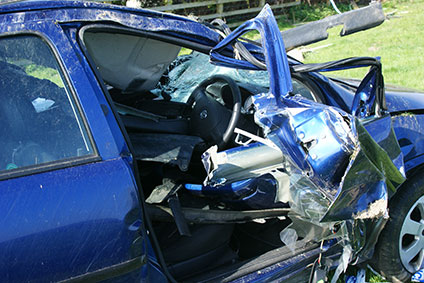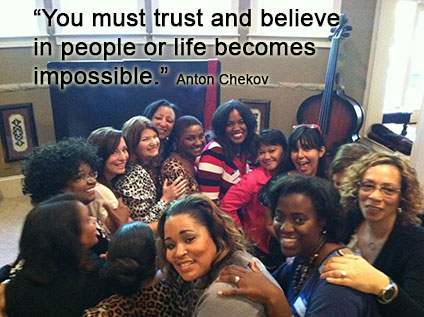When I was in school, I had a job at a Botanical Gardens located on a busy curve on the bay front in Sarasota. It seemed like every week, we would hear the squeal of brakes, followed by the sound of crunching metal and shattering glass. Dialing 9-1-1 became routine around there. None of the accidents I witnessed were fatal, but the injury, inconvenience and mess were bad – especially since it was a regular occurrence.

Seeing a car crash is stressful. Being in one – even more so. The emotional wrecks we have with people are not much different. There may not be blood, but misunderstanding, anger, blame, regret, and disappointment are very real injuries. The damage typically results in mistrust, which is a leading cause of fatalities in relationships. Breach of trust is not covered by insurance and is extremely costly.
Mutual trust is a key in every healthy relationship. How do you build and protect it?
Trust in the workplace eroded right along with the economy in the last 5 years. According to Deloitte’s Ethics & Workplace Survey, 48% of employees cite a loss of trust in their employer and 46% say that a lack of transparent communication from their company’s leadership have caused them to want to leave their current job. These statistics shout to leaders to address this issue and take time to fix it before it costs the team its most valuable players. Where do you start?
Building Trust: The Critical Factor That Changes Everything
The simplest place to start is with you. When you are anchored to your core values and secure in your identity, you trust yourself. That gives others reason to trust you too. Self-trust is born of faith and vision and strength of character. Self-trust manifests in attitude and integrity of action and is contagious (just as mistrust is.) Self-trust unfolds when you get clear on your passion, mission, direction and course of action. So get clear – really clear.
You become a leader who can bring out the best in others when you trust people to do more than they thought was possible. It is common knowledge that people rise to what is expected of them – the result of trusting someone is that is frees them. It frees them to test their own capabilities and it frees them to fail. Yes, that’s right – fail. After all, failure is just feedback when you’re in a safe environment of trust. See the best in others – even when they can’t see it themselves.
Some leaders become jaded by having their trust abused. Been there, done that and have the t-shirt – who doesn’t? There’s risk involved with working with people, just as there’s risk involved every time you get in your car to go somewhere. The possibility of an accident doesn’t prevent you from riding in a car. Without risk, there is no reward.
Building an atmosphere of trust is as critical to your success as your bank balance or number of new clients. Trust is the environment in which these measuring sticks will grow. We’ve all seen enough wreckage. Be the change you want to see by trusting others to be become better than they thought they could be. That’s leadership.


Hi Beverly,
Really great post on trust and I really got me thinking about some things that I have or have not done in my life and how things could be different, if I had made different choices.
It is sad to hear about all the different accidents that went on, and nothing really got done.
Thank you for sharing.
Thank you for your remarks, Robert. When it comes to regret, I like what Thoreau has to say:
“Make the most of your regrets; never smother your sorrow, but tend and cherish it till it comes to have a separate and integral interest. To regret deeply is to live afresh.”